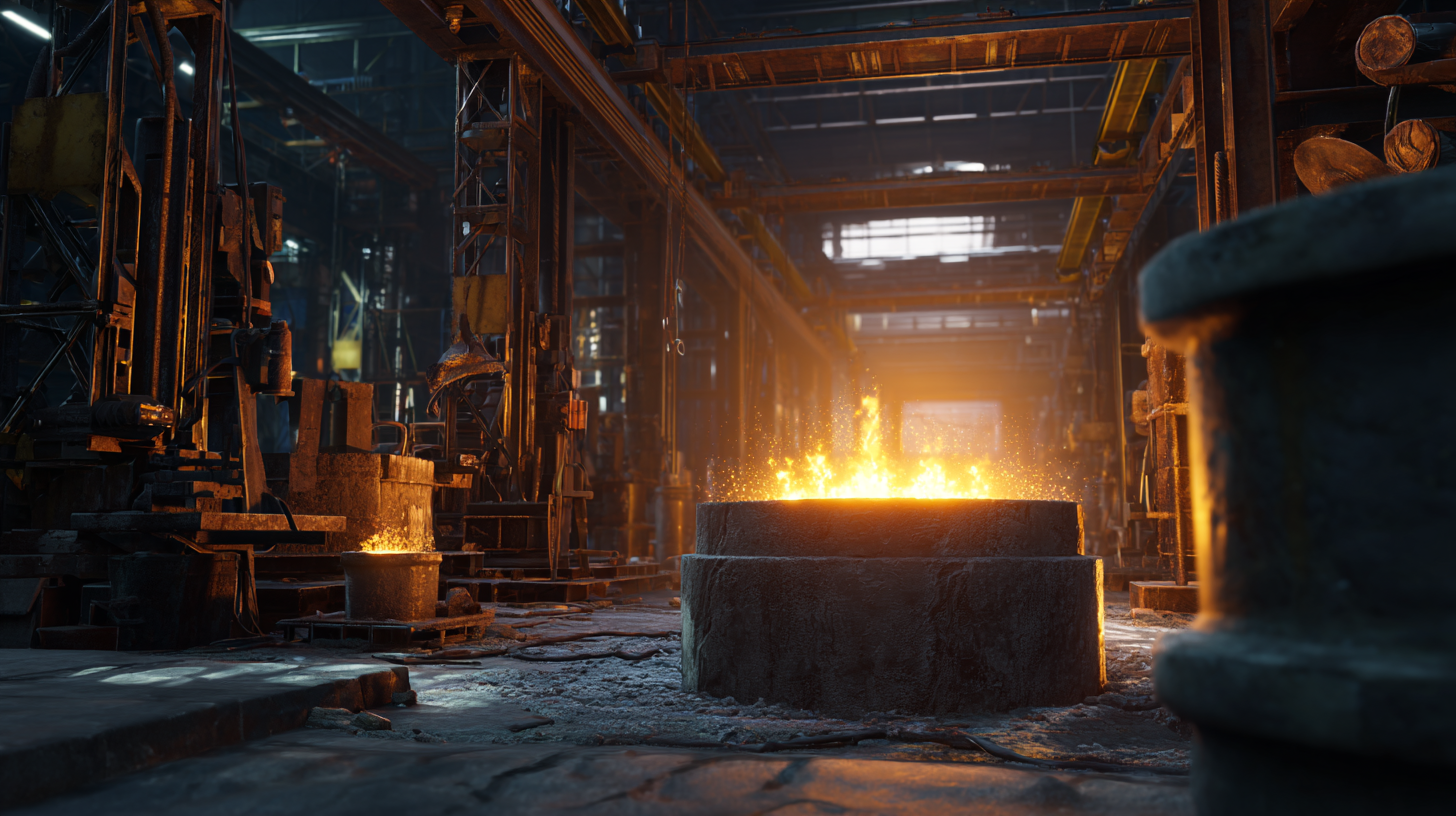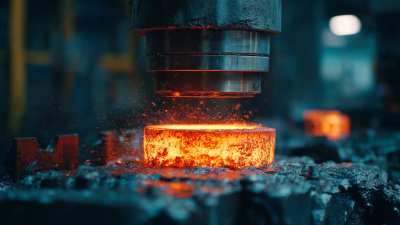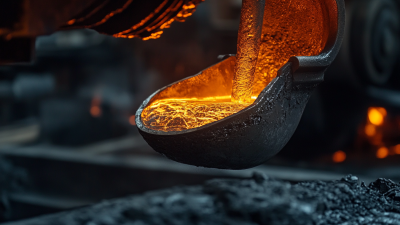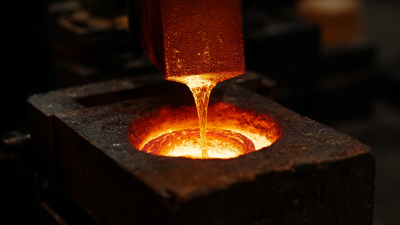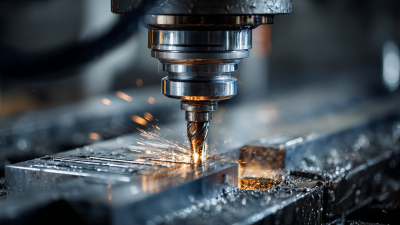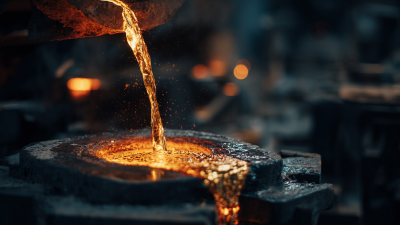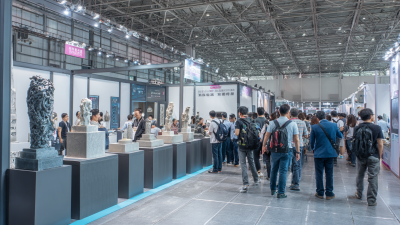In the ever-evolving landscape of manufacturing, Casting Foundries are at the forefront of adopting sustainable practices that not only enhance efficiency but also minimize environmental impact. As industries face increasing pressure to reduce their carbon footprint and embrace eco-friendly methodologies, the realm of casting is undergoing transformative changes driven by innovative technologies and trends.
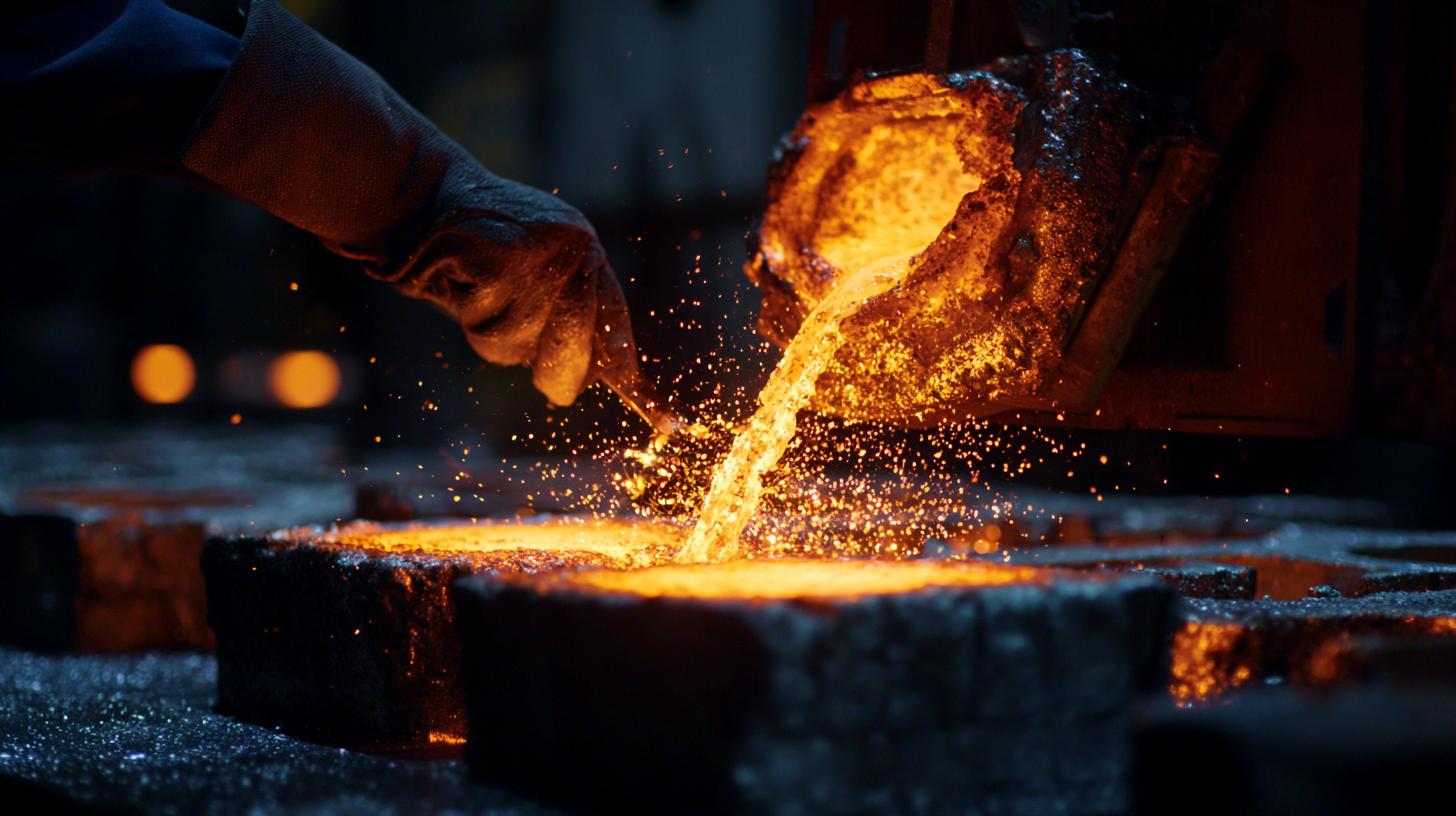
This exploration into the future of sustainable practices in Casting Foundries highlights cutting-edge techniques such as the use of recycled materials, energy-efficient processes, and the implementation of advanced automation. By examining these innovations, we can gain insights into how Casting Foundries are poised to lead the charge toward a greener manufacturing paradigm, ensuring they remain competitive while adhering to environmental responsibilities.
The importance of sustainability in this sector not only addresses regulatory demands but also resonates with a growing consumer preference for ethically produced goods, making it imperative for Casting Foundries to adapt and thrive in this new era.
As the foundry industry evolves, innovative green technologies are at the forefront of its transformation. Companies like Humtown and Fabri are redefining the landscape with their cutting-edge applications of additive manufacturing and artificial intelligence. These technologies not only streamline the production of molds and castings but also significantly reduce waste and energy consumption. By integrating sustainable practices with advanced manufacturing techniques, these firms exemplify a commitment to environmental stewardship while enhancing operational efficiency.
Moreover, initiatives like the New York City Economic Development Corporation's selection of climate tech companies highlight a broader trend towards sustainable innovation in urban settings. By fostering a supportive ecosystem for green technologies, cities are catalyzing advancements that can be adopted by foundries and similar industries. The integration of industrial AI and digital twin technology is transforming traditional production processes, paving the way for a more sustainable future. As these trends continue to gain momentum, the potential for realization of environmentally friendly practices within casting foundries becomes increasingly tangible.
The implementation of circular economy principles in the metal casting processes is becoming increasingly vital for enhancing sustainability within foundries. By focusing on optimizing waste resource efficiency, foundries can minimize their environmental impact and contribute to resource conservation. The concept of a circular economy encourages the reuse and recycling of materials, thus transforming waste into valuable resources. For instance, advancements in metal recycling technologies allow for greater efficiency in retrieving metals from waste, reducing the need for virgin materials and aligning with sustainable practices.
In addition to recycling efforts, innovative projects are emerging, such as pioneering aluminum alloy sorting technologies that significantly improve material recovery rates. These innovations enable foundries to utilize reclaimed materials more effectively and reduce their carbon footprint. By integrating these technologies into metal casting processes, foundries can not only meet the growing demand for sustainable production but also position themselves as leaders in the transition toward eco-friendly practices. This holistic approach, centered around the principles of the circular economy, paves the way for a more sustainable future in the metal casting industry.
The focus on energy efficiency within foundries is becoming increasingly critical as the industry shifts towards sustainable practices. Recent projections indicate that the global market for natural graphite, a key material used in various foundry applications, is expected to grow significantly—from $2.35 billion in 2025 to $4.62 billion by 2032, reflecting a compound annual growth rate (CAGR) of 10.1%. This surge in market size aligns with the broader push for innovation in energy-efficient processes that aim to minimize resource consumption and environmental impact.
In this context, advancements in technologies such as digital transformation are playing a pivotal role. For instance, industrial solutions leveraging AI and data analytics are transforming how foundries operate, optimizing energy usage and reducing emissions. Companies are increasingly adopting these smart technologies to enhance productivity while adhering to stringent sustainability goals. The ductile and grey iron casting products market, valued at approximately USD 49.32 billion in 2024, underscores the increasing demand for materials and processes that support sustainable operations, further driving the need for innovative energy-efficient practices in foundries.
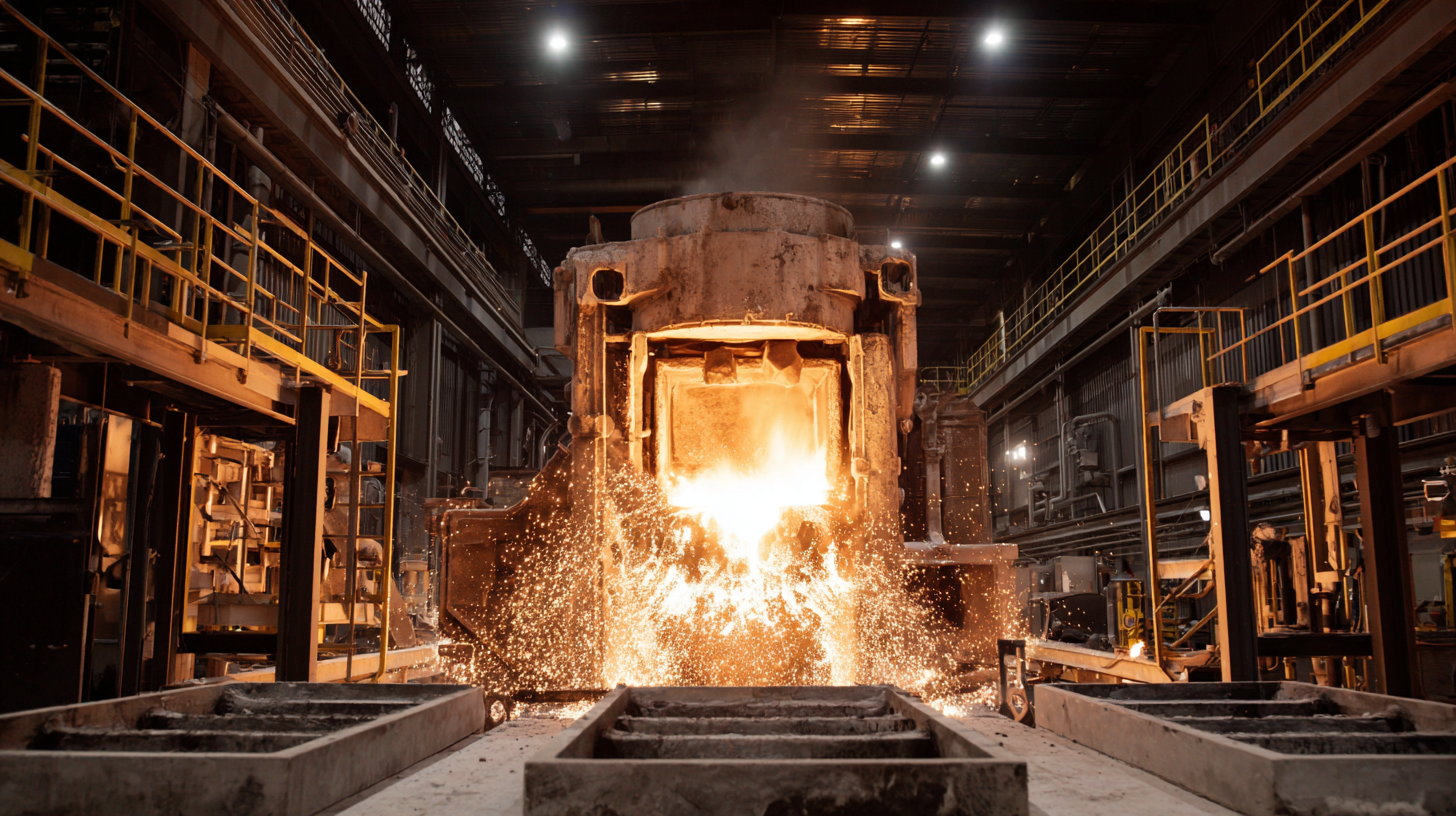
The casting foundry industry is undergoing a significant transformation with the introduction of biodegradable and eco-friendly materials. As environmental concerns gain prominence, these sustainable alternatives are emerging not only to reduce waste but also to enhance the overall production process. Materials such as plant-based resins and recycled metals are gaining traction. They offer the same durability and performance as traditional options, while minimizing the carbon footprint associated with casting operations.
**Tips for Implementing Sustainable Practices:**
1. Consider testing biodegradable resins in your next project to evaluate their compatibility with existing processes.
2. Collaborate with suppliers who specialize in eco-friendly materials to stay informed about the latest innovations and trends.
3. Prioritize employee training on sustainable practices to foster a culture of environmental responsibility within the foundry.
By adopting these practices, foundries can contribute to a greener future while maintaining efficiency and productivity. As the industry evolves, the integration of eco-friendly materials will not only enhance the reputation of foundries but also attract environmentally-conscious clients eager to support sustainable initiatives.
Regulatory trends play a crucial role in shaping sustainable practices within casting foundries. As governments worldwide tighten environmental regulations, foundries are increasingly compelled to adopt more sustainable methods. For instance, many countries are implementing stricter emissions standards, which encourage foundries to invest in cleaner technologies and processes. These regulations foster innovation as companies seek to minimize waste and improve energy efficiency, ultimately leading to a reduction in the carbon footprint of casting operations.
Moreover, regulatory frameworks are increasingly promoting circular economy principles, which prioritize resource conservation and recycling. Foundries that proactively align their practices with these regulations not only enhance their environmental stewardship but also gain a competitive edge in the market. This trend is evident in the growing adoption of recycled materials in the casting process and investments in technologies that enable the reuse of waste products. The shift toward sustainability, driven by regulatory demands, thus presents both challenges and opportunities for foundries aiming to thrive in an environmentally conscious landscape.
